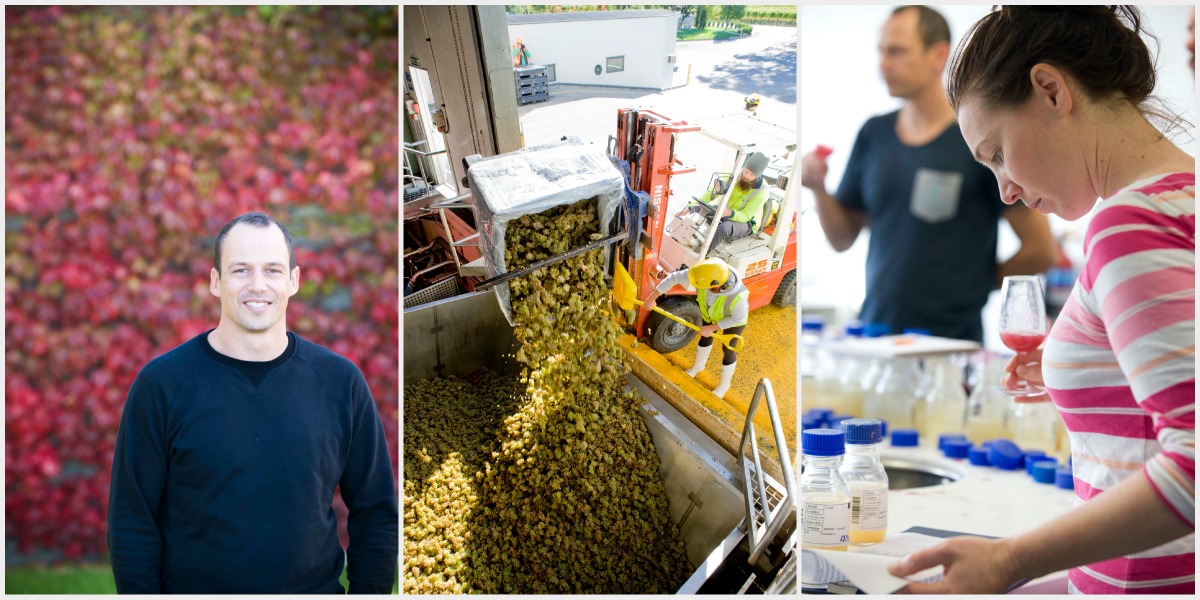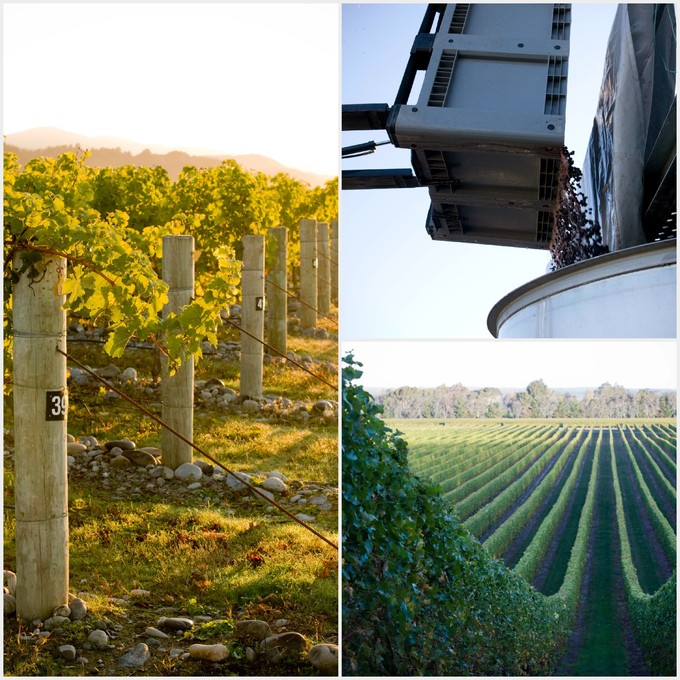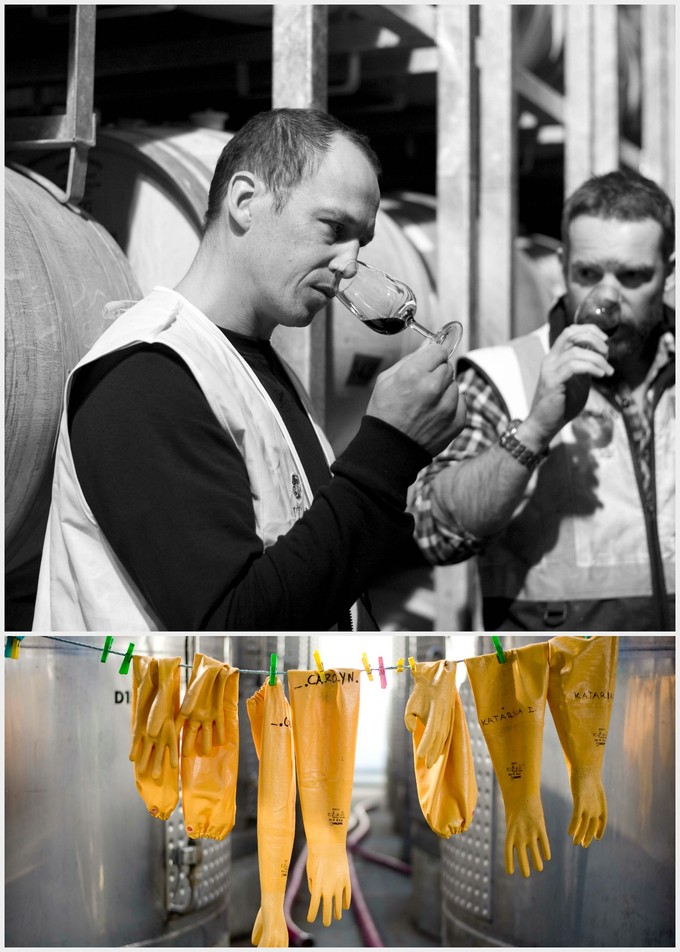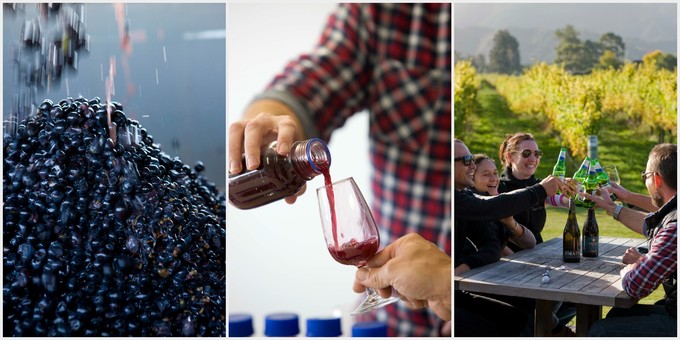Awarded the country’s best winemaker for three years running, Nikolai St George gives a glimpse into his daily work at Matua
The Matua tasting room is like a scientific sports bar. Here, at the heart of the gleaming winery complex in Blenheim, alcohol is served in sample jars and the wall-mounted, flat screen TV broadcasts the latest ferment-chart updates with sugar versus alcohol, and temperature ratios. There are no white coats – the dress code is casual – but the heady punch of passionfruit aromas is in a realm somewhat higher than the ambience of your usual local watering hole.
Of the three winemakers present to sniff and spit the latest vintage, Nikolai St George is the somewhat reluctant hero.

Recently awarded ‘New Zealand Champion Winemaker of the Year’ for the third year running at the Royal Easter Wine Show, he sees the win as a team effort.
“It’s great to get up there for Matua, but when you get to be a company of this size everyone’s building towards it together. A lot of it is timing. Any one of my guys are capable of doing the senior side of things, that’s for sure.”
Nikolai grew up on a high country farm in the Waikato, where there was always a bottle of wine on the family dinner table. His sideways move into viticulture gave him the opportunity to learn about an industry where he could be involved in absolutely every aspect of the business.
At the tender age of 16, Nikolai “took off to Gisborne” to study viticulture and winemaking at Tair?whiti Polytechnic, and went on to complete a university degree in Australia, taking advantage of what was then a newly booming industry with plenty of funds to plough into training new winemakers.
As a graduate, his first role as a winemaker was at Goldwater Estate on Waiheke Island.
“I really wanted to be part of the more boutique side of the industry. It gives you very good habits from a winemaking point of view. You learn to respect the wine – every litre counts.”
Nikolai worked six vintages on Waiheke then set out to travel with his partner and young child. He worked vintages in Chile, the United States and France before returning to New Zealand in 2009, to assume a winemaker role with Matua wines.
As luck would have it, the head winemaker moved on just one week later and Nikolai was asked to work both roles for his first vintage with Matua. By the time that harvest was in the bottle, the mantle of ‘head winemaker’ was his.

During the six years since, Nikolai has refined his nose – not just in creating the Matua wines, but also for those who are drinking them. The job description for his role is as much about interpreting and communicating to the market, as it is achieving the ephemeral balance required for excellent wines.
“I try to understand what people like to drink and why,” he explains. “Within each of our brands we have a bit of a brief for what we want from each label. From there, when we’re blending up, people have an idea of what we’re trying to achieve and how it all works. That’s how I talk to the guys – we have an image of what our end point is.”
Nikolai travels extensively, both locally and internationally.
“In New Zealand we think we can do everything (in wines) but overseas they see us as very singular. We spend a lot of time in our marketplaces and with distributors trying to educate them that we can do better than just the Sauvignon Blanc. We’re more than just a one trick pony.”
He explains that his philosophy for creating wines centres on “…purity of fruit and wines of interest. You can create a perfect wine that ticks all the boxes and yet it can be quite boring. It’s like adding chilli and spices to food – it might not complement the food in all ways, but it actually creates more interest.”
As a passionate fan of freshly caught seafood, Nikolai prefers a chardonnay. “Chardies are probably a bit of a thing for me. I drink them all year round – especially from the Hawke’s Bay. They’re so aromatic and theirs have so many spectrums of what chardonnay can be, all in one.”

The ‘million dollar question’ with winemaking, says Nikolai, is choosing the best time to pick. During the lead-up to harvest he criss-crosses the country, visiting the various Matua vineyards every five or six days to check on the fruit.
There, it’s a matter of constant tasting and testing, looking at analyses of the fruit to gauge its progress. “We need to decide four or five days in advance in order to arrange everything: bins, trucks, pickers etc, in time.”
He explains that it’s a blend of guesswork and experience to make this decision in advance; requiring knowledge of both the vineyards and the surrounding regions. “You don’t hit it all the time but you try to prioritise – the best blocks we want to hit bang on.”

These days the grapes will be picked either by hand or machine, depending on the variety. Most of the Marlborough Sauvignon Blanc harvest is collected by specially designed machines, which are able to meticulously separate the leaves and their stalks (petioles) from the delicate-skinned fruit while still in the field.
Along with preserving flavours present in the skins, Nikolai says that these machines are often more preferable than human pickers because they allow the harvest to be collected overnight, when the colder temperatures prevent unwanted microbial growth.
Although this year’s take is smaller than average, with 90 tanks to keep an eye on there’s still a lot of tasting to be done. The drying effects of the pinot tannins, in particular, can make for heavy work. The tasting team sometimes retires for a palate-cleansing beer in the vine-clad surrounds of Matua’s Spence cottage, just down the road, named for the company’s founders: Ross and Bill Spence.
With the new vintage underway, New Zealand’s top winemaker believes all of us have the capacity to sniff out a good wine. “I think everyone has the same sense of smell,” says Nikolai. “It’s just about the ability to break things up.”




